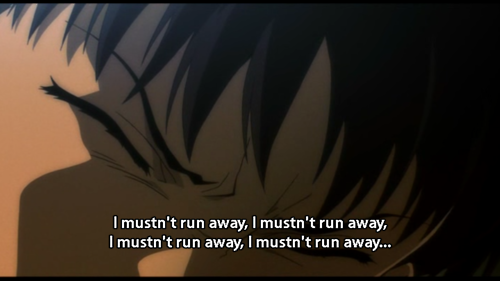Can you please share some of the techniques that you were taught by your therapist? I so wish I had the resources for CBT when I was at my worst.
A lot of the work i've done has been around trauma and addiction, so i'm not sure exactly how applicable anything i could suggest would be.
Most of what i found most helpful was to simply talk through the things that caused me anxiety/stress/insomnia/cravings (depending on the situation and the symptoms) and simply explain what was happening - and my thoughts and feelings - to my counsellor - and have them respond to what i said.
For example, if i were to say "i had an incident at work, these things happened (elaborating) and it has caused x, y and z emotional/physical responses to the stressful stimuli" - the counsellor would tend respond to whatever stood out about the statement i'd just made - not only what happened, but how i explained it - as well as any relevant points which may indicate how i am responding to such things.
By that i mean, if i said "i got fired, i had a panic attack - now i can't sleep and i've lost all hope", the counsellor would explore what happened, but also why i jumped to such negative conclusions.
On the other hand, if i said "i got fired, i had a panic attack - now i can't sleep, but it's not all bad, because i hated the job, got paid out for my leave entitlements, so i have this plan to (...etc etc) - we would discuss how it is normal, healthy and understandable to feel anxiety in what is a stressful life event.
So in terms of therapy, it is actually the ability to self-analyse my emotional and conscious responses to things that has been one of the most helpful parts of it - because i have learned a series of coping strategies, rather than reaching for the benzos or opiates when times are tough.
When times are really tough, and i find anxiety is getting in the way of being able to function properly, i've been shown a bunch of different grounding exercises, which often consist of breathing techniques that make you aware of your body, draw your thoughts out of your head momentarily, and give a bit of relief from the feelings of panic and fear.
Mindfulness, essentually.
A classic one of these is to time one minute (by setting a digital alarm or looking at the second hand of a clock) - and count how many times you breathe in that minute. Count each breath - in and out - as 1 breath.
It only takes a minute, but i find it can be a really effective way of reining-in the racing thoughts that i tend to get when i'm anxious.
I never really experienced anxiety as i was growing up, so when it appeared in my life around my mid-20s, i had not developed any skills to help cope with it.
Therapy was really helpful though - much more than drugs have ever been (for me), and much more than i expected.
I understand and appreciate that drugs are useful in some situations, but when someone says "please recommend a drug" for something like that, i tend to think "maybe you should try a few other things first".





